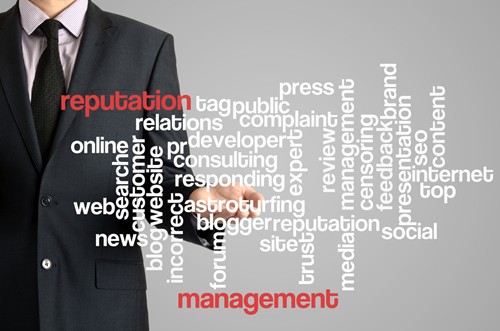
Professional reputations: What makes and breaks them
09 Nov 2017
I remember the ‘cool kid’ from primary school. You know – the one whose reputation precedes them, who makes heads turn when they walk down the hallway. I have to give these kinds of kids a lot of credit, because they figured out how to give themselves a reputation long before the rest of us did.
It might not be relevant for school anymore, but reputation-building is still important for professionals. Let’s look at some of the best ways to build your professional reputation at work, as well as some ways you could potentially break it.
Building your reputation
The most important thing to remember is that everything you do adds to your reputation. Jocelyn Greenky from WeWork suggests that you focus on building a reputation from your first day on the job. Making an effort to establish trust between yourself and clients/colleagues will serve you well in the long run.
Do what you say you’re going to do, and do it with a sense of urgency.
Put yourself out there! Write content for your company and build your professional brand on LinkedIn. If you manage a network of people who can see your integrity, drive and passion, they’ll help you build your reputation just by talking about you to others. Overall, just try to surround yourself with positive people who reflect your values and appreciate your strengths.
Another great way to keep up a good reputation? Follow through. Do what you say you’re going to do, and do it with a sense of urgency. Overall, the people with the best reputations are those who are constantly looking for ways to improve.
 Building a good reputation is difficult – breaking one down is easy.
Building a good reputation is difficult – breaking one down is easy.
Keeping it intact: What not to do
Destroying a reputation is considerably easier than building one. All it takes is one dishonest interaction or a missed deadline to bring down your reputation a few notches. Other things to avoid are making excuses or losing your temper at work – regardless of how good your reputation was before, such behaviour could ruin it.
It might seem okay at the time, but bad-mouthing a former employer will also make you look bad in the long run. Colleagues and bosses might worry that you’ll someday be bad-mouthing them, and this could cause them to distrust you.
All it takes is one dishonest interaction or a missed deadline to bring down your reputation a few notches.
This is an issue that has only come about in the last decade or so, but the final faux-pas to avoid has to do with social media. Keeping your personal and professional lives separate, especially if you have potentially inappropriate content on your social media, is important. While it’s fine to post fun things on your Facebook or Instagram, make sure you keep it away from your professional associates.
How can leadership training help?
Building (and maintaining) a professional reputation is especially important for leaders and people who want to be in leadership positions someday. Even if you’re in an entry-level job now, you have to be careful about what you say and do online and in person. Comments or pictures might come back to bite you down the road when you’re vying for that manager position.
People interested in building their reputation can benefit from leadership training courses – in these kinds of programs, you learn how to be a successful leader and communicator. At ICML, we offer a number of leadership as well as communication training courses designed to help professionals be their best selves.
For more information about signing up for our programs, please reach out to a representative today.





